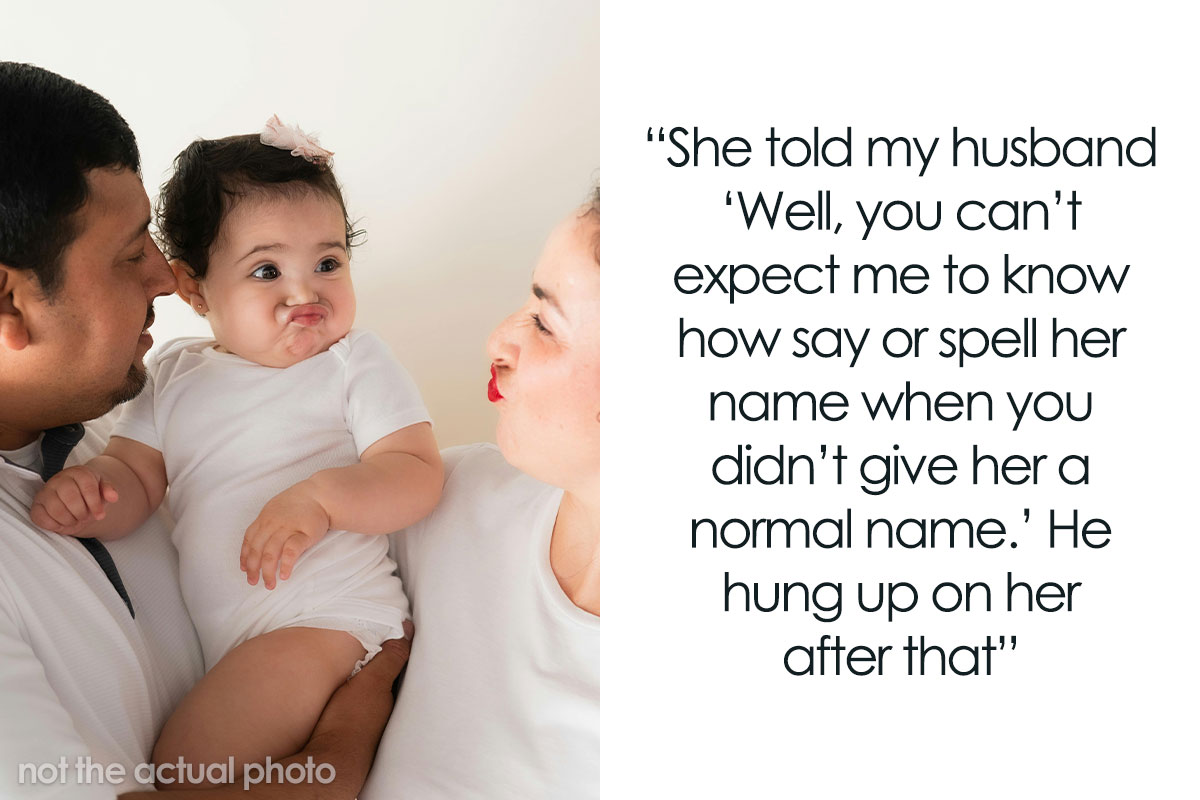
MIL Refuses To Learn To Even Spell Baby’s Name, Refuses To Write It As It’s Not ‘Normal’
Names are deeply tied to our identity, carrying echoes of history and heritage. When chosen from a cultural background, they hold even greater significance for parents. It can be hurtful, then, when people disregard or make no effort to learn and appreciate a name simply because it falls outside their own frame of reference.
This Redditor’s experience with her mother-in-law who couldn’t be bothered to learn her grandchild’s full name due to its perceived “unfamiliarity” exemplifies this perfectly.
More info: Reddit
For parents, choosing a name for their child is a significant act, imbued with meaning and cultural significance
Image credits: Carlos Santiago (not the actual photo)
The author’s mother-in-law balked at writing her grandbaby’s name, citing difficulty with the spelling of the name
Image credits: Porapak Apichodilok (not the actual photo)
Image credits: Juan Pablo Serrano Arenas (not the actual photo)
The poster’s mother-in-law’s justification for this was that she could neither say it or spell it
Credit: u/Alternative_Sky_928
While everyone seems to disagree with this behavior, she is doubling down on it and is trying to vindicate herself
The Original Poster (OP) and her husband are facing a delay in obtaining their child’s passport due to a disagreement with the paternal grandmother over the baby’s middle name. This is because, in Canada, a non-parent or guardian must sign a passport application and the back of the child’s photo to verify their identity.
The parents chose a middle name for their daughter that reflects the author’s Asian heritage. However, her mother-in-law expressed difficulty pronouncing and spelling the name. They even offered her the completed form with the name spelled out.
Now, her husband reportedly contacted his mother later to discuss the situation. The conversation escalated when she mentioned that they can’t expect her to know how to say or spell the name when they didn’t give her a normal name. This comment ultimately led to the OP’s husband ending the call.
The OP’s mother-in-law has since reached out to her other child and their spouse, painting the situation as the couple “making a big deal over nothing.” However, after being informed of the full context, they have taken a step back and have also chosen to limit contact with her.
Image credits: T Leish (not the actual photo)
In the comment, the OP noted how her MIL’s other grandchildren have other names from their parents which you will never find on a site or in a book, which her mother-in-law can say quite well. Apparently, upon being called out by her kids, she seems to be doubling down on it.
Having in-laws from a different culture can be a double-edged sword. While exposure to new traditions and perspectives is enriching, clashing customs can arise in various areas, including naming practices. In this instance, the lack of cultural sensitivity from the mother-in-law, as evidenced by her refusal to learn the name’s origin and pronunciation, caused unnecessary tension.
According to FasterCapital, cultural sensitivity is an essential aspect of any cross-cultural interaction. It is the ability to understand, appreciate, and respect the differences that exist between people of different cultures.
“Cultural sensitivity is critical because it helps individuals to avoid misunderstandings and misinterpretations that can lead to conflicts or strained relationships. In today’s globalized world, cultural sensitivity has become more important than ever before. With people from different cultures coming together in various settings, it is crucial to have an understanding of how to interact with people from different backgrounds.”
If left unchecked, cultural insensitivity can lead to a breakdown in communication and a growing distance between family members. In this case, the mother-in-law’s actions could potentially damage her relationship with her son, daughter-in-law, and ultimately, her grandchild.
Lauren Schieffer emphasizes the need to confront our own biases and actively seek to understand different perspectives. “We all have prejudices,” she acknowledges, “but are we willing to learn and grow?”
By asking questions and showing a willingness to learn, we can build bridges and foster stronger relationships, even amidst cultural differences. In this case, a simple effort by the mother-in-law to understand the name’s significance and get the name right could have prevented unnecessary tension. What are your thoughts on navigating cultural differences within families? Share your own experiences or advice in the comments below. Let’s keep the conversation going!
Commenters called out how racist the author’s mother-in-law was being
Poll Question
What would you do if a family member refused to learn the correct spelling or pronunciation of your child's name?
Insist they make an effort
Offer phonetic or simpler alternatives
Limit contact with them
Ignore their behavior
So MIL's white children create baby names by essentially pulling scrabble tiles from a hat, and that's okay with her. But OP chooses an established name with cultural significance to millions of people over hundreds of years, and MIL thinks that is "abnormal" because: brown people.
I agree. I'm a weird mishmash of cultures - I'm white af, but was adopted at birth into a Mexican family in Southern California, so I grew up pretty enmeshed in Hispanic culture. I speak Spanish fluently and I honestly feel "culturally" like I'm Mexican even though I'm white by genetics XD My boyfriend is Chinese, the firstborn son of Chinese immigrants (my bf was born here in Cali.) He has a very traditional, common old-school "white" first name (think Matthew), but he has a very traditional Chinese middle name - as is tradition, all the children of a certain generation within the family are given middle names that are variations on a theme. Boyfriend and I have been together for 23 years. I had zero problem (quickly) learning how to pronounce his parents' (traditional) first names and my bf's middle name, even though Mandarin can be a complex language to learn/pronounce for non-native speakers.
Load More Replies...Grandma spent more time being a twat than it would have to learn how to say name. Sacked.
Being racist is bad enough in itself, but being racist against your own grandkid is next level. What a twaṭ.
So MIL's white children create baby names by essentially pulling scrabble tiles from a hat, and that's okay with her. But OP chooses an established name with cultural significance to millions of people over hundreds of years, and MIL thinks that is "abnormal" because: brown people.
I agree. I'm a weird mishmash of cultures - I'm white af, but was adopted at birth into a Mexican family in Southern California, so I grew up pretty enmeshed in Hispanic culture. I speak Spanish fluently and I honestly feel "culturally" like I'm Mexican even though I'm white by genetics XD My boyfriend is Chinese, the firstborn son of Chinese immigrants (my bf was born here in Cali.) He has a very traditional, common old-school "white" first name (think Matthew), but he has a very traditional Chinese middle name - as is tradition, all the children of a certain generation within the family are given middle names that are variations on a theme. Boyfriend and I have been together for 23 years. I had zero problem (quickly) learning how to pronounce his parents' (traditional) first names and my bf's middle name, even though Mandarin can be a complex language to learn/pronounce for non-native speakers.
Load More Replies...Grandma spent more time being a twat than it would have to learn how to say name. Sacked.
Being racist is bad enough in itself, but being racist against your own grandkid is next level. What a twaṭ.

 Dark Mode
Dark Mode 

 No fees, cancel anytime
No fees, cancel anytime 







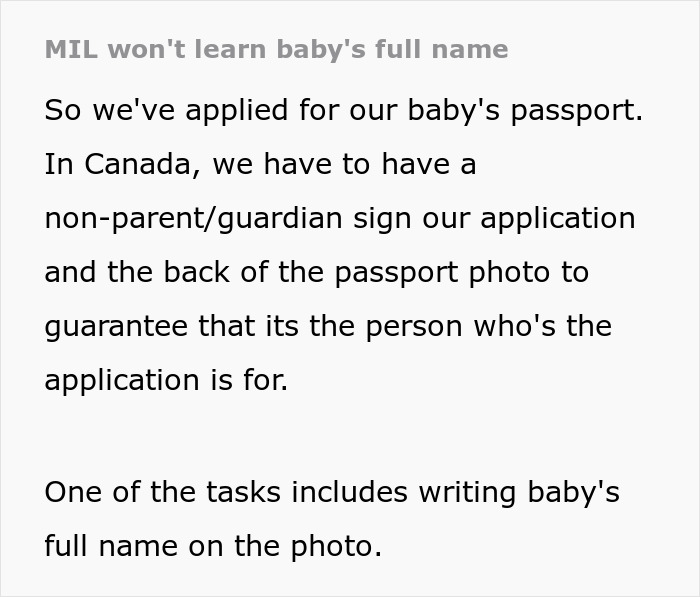

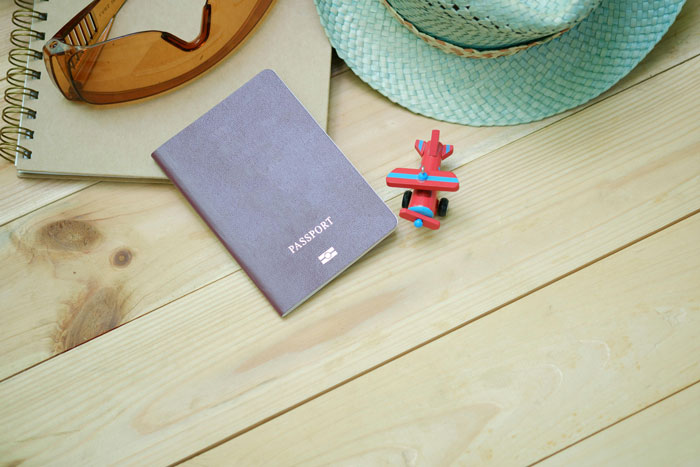
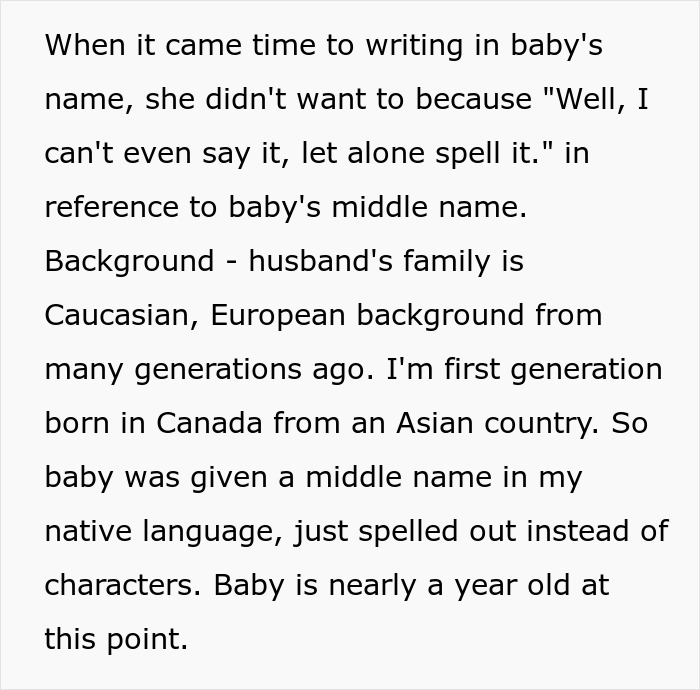
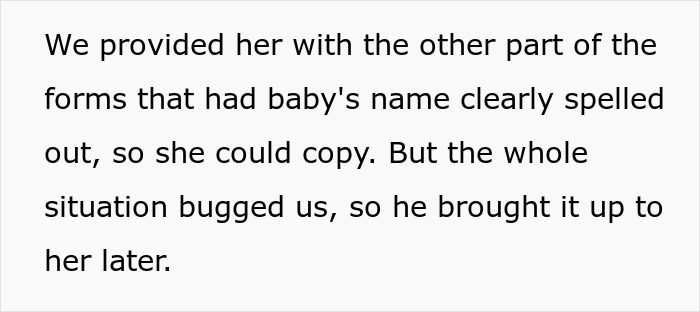

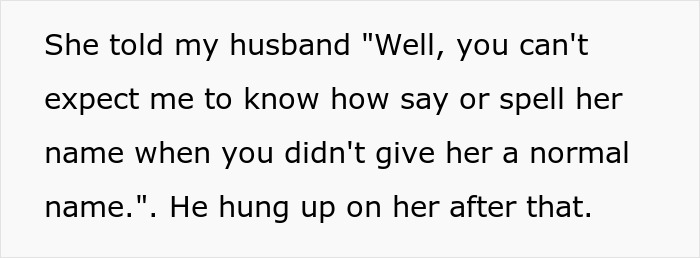
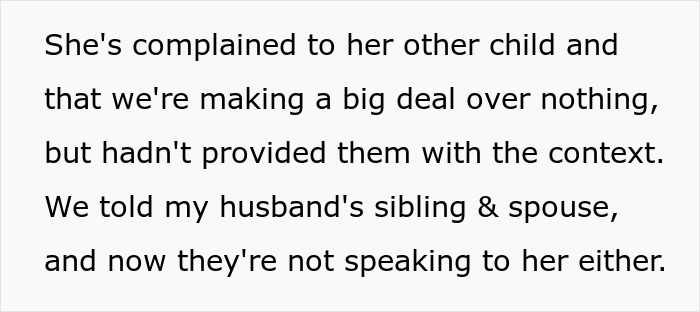
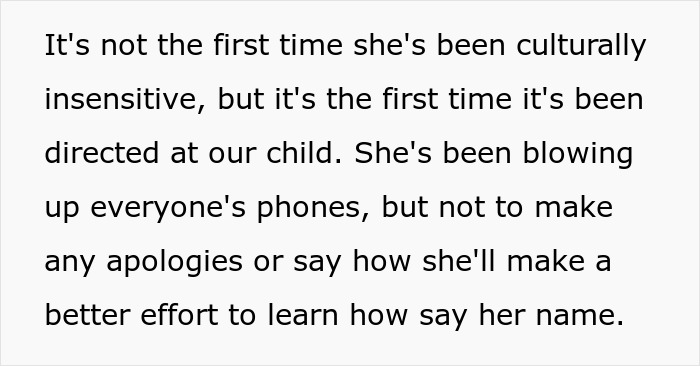


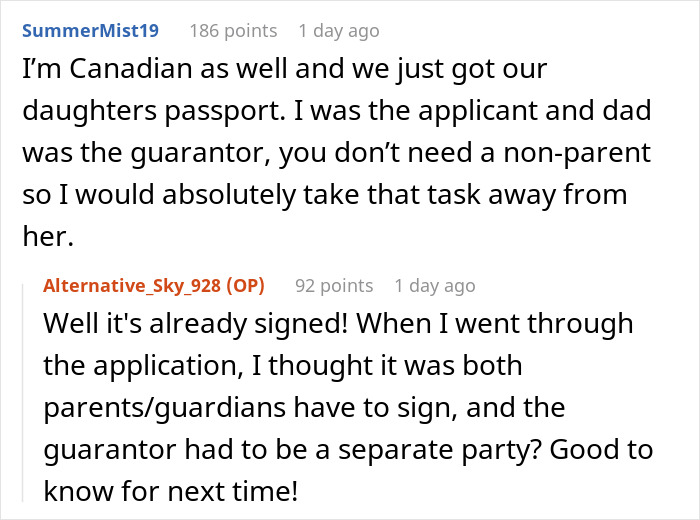
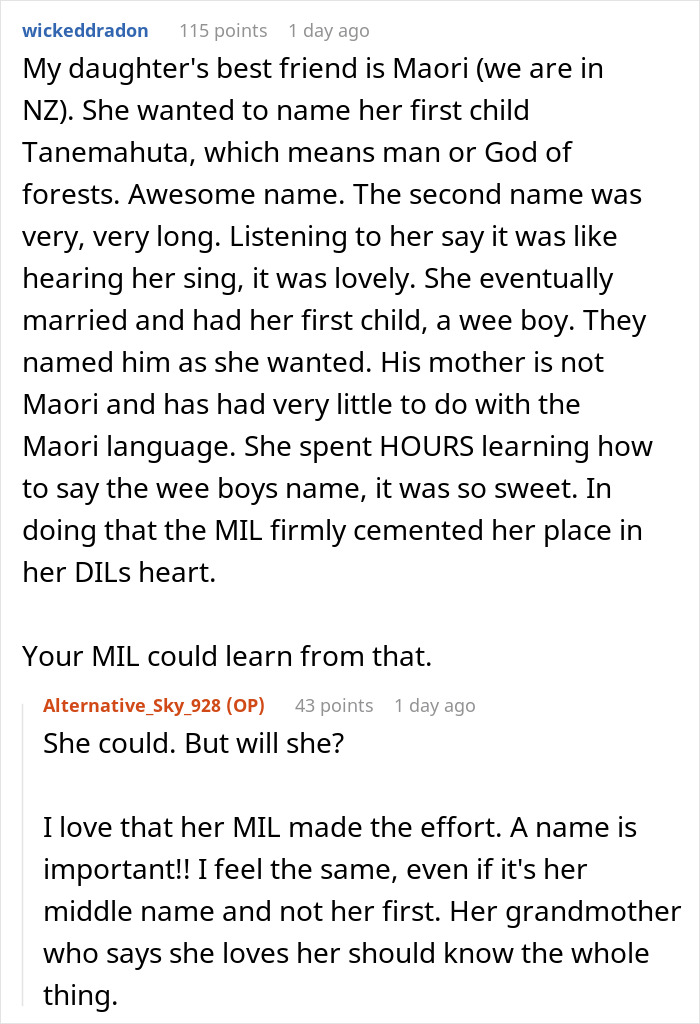





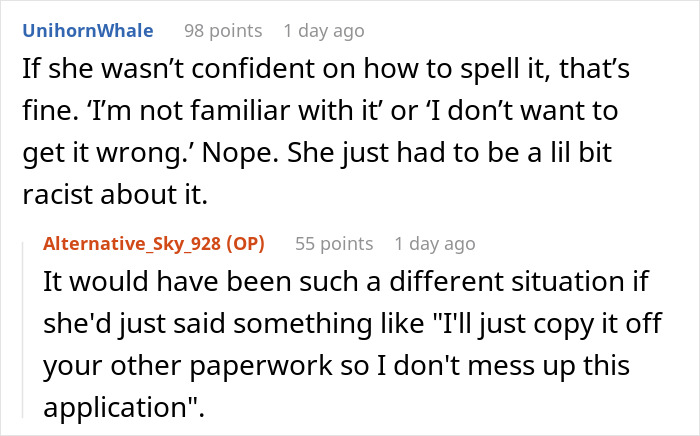
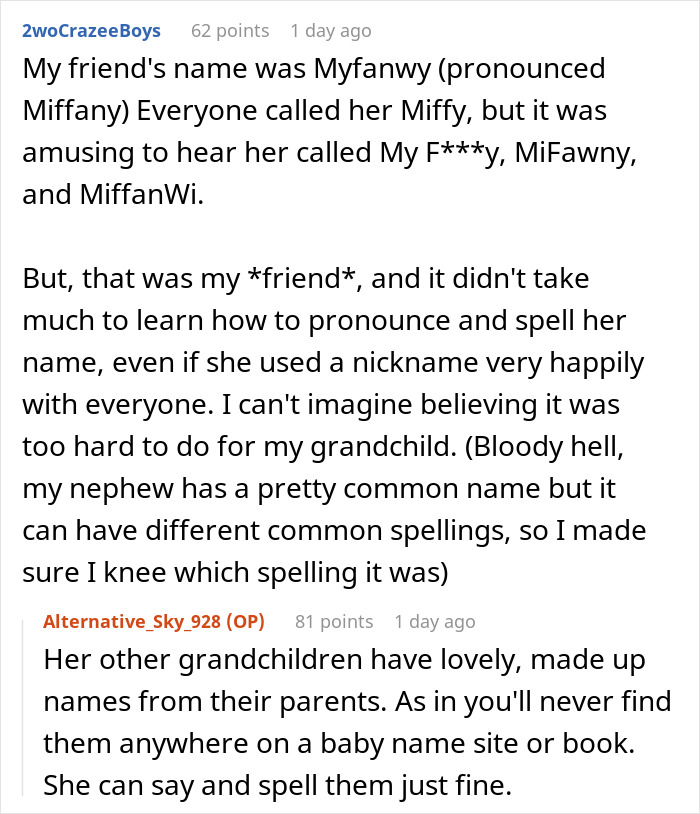
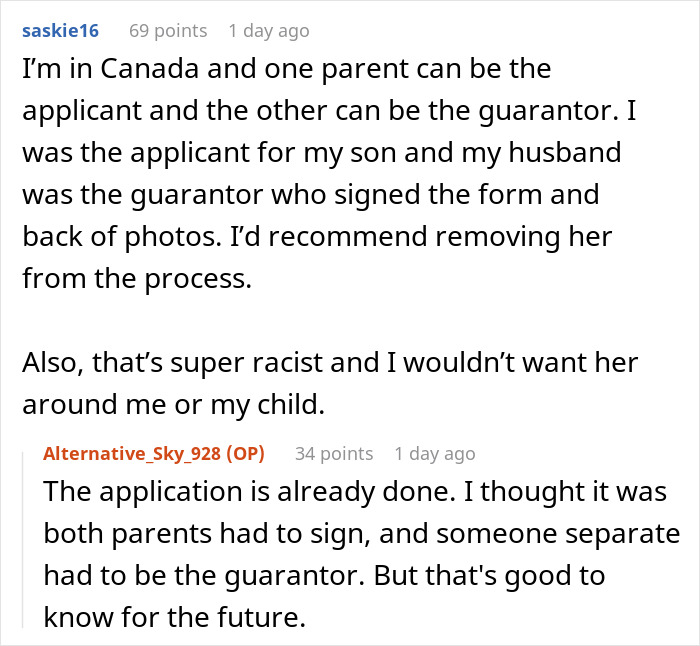
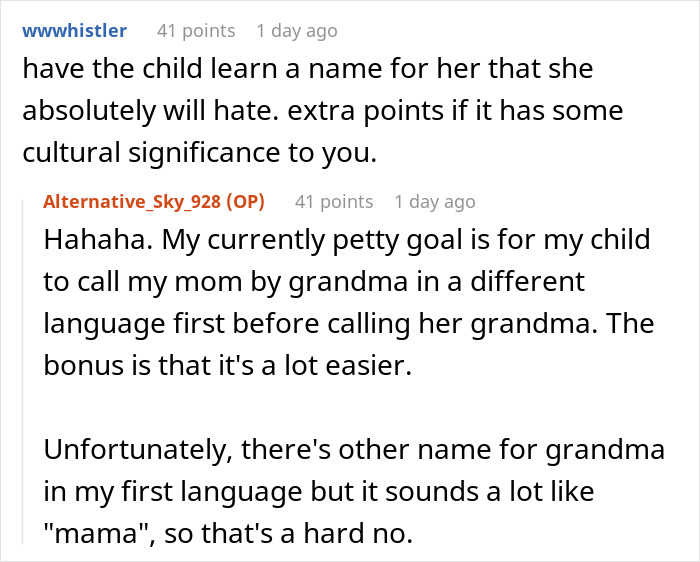
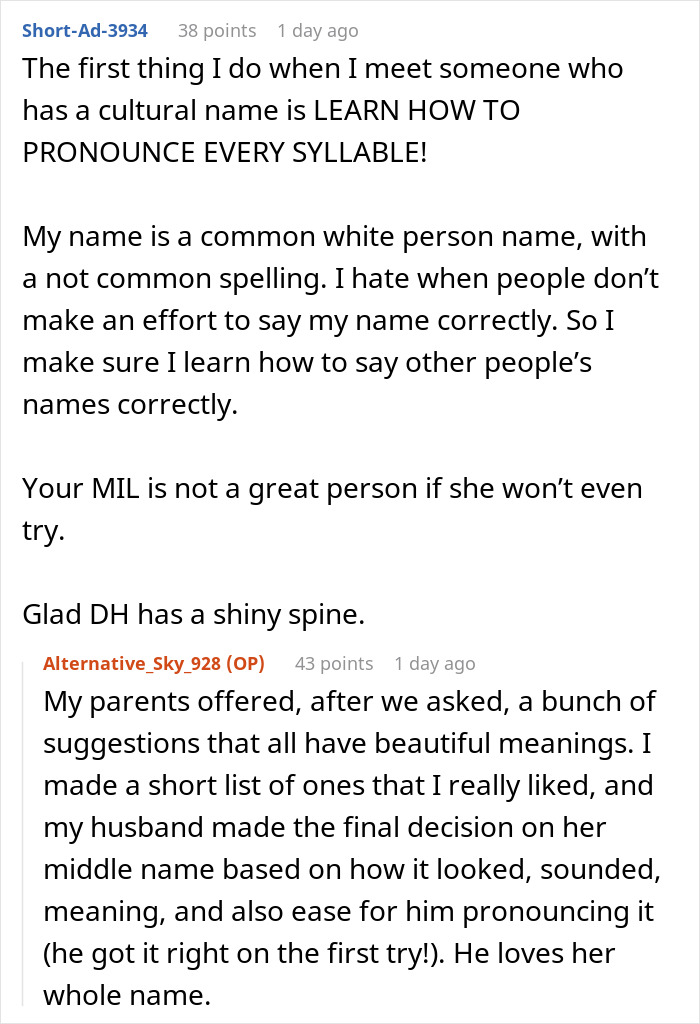


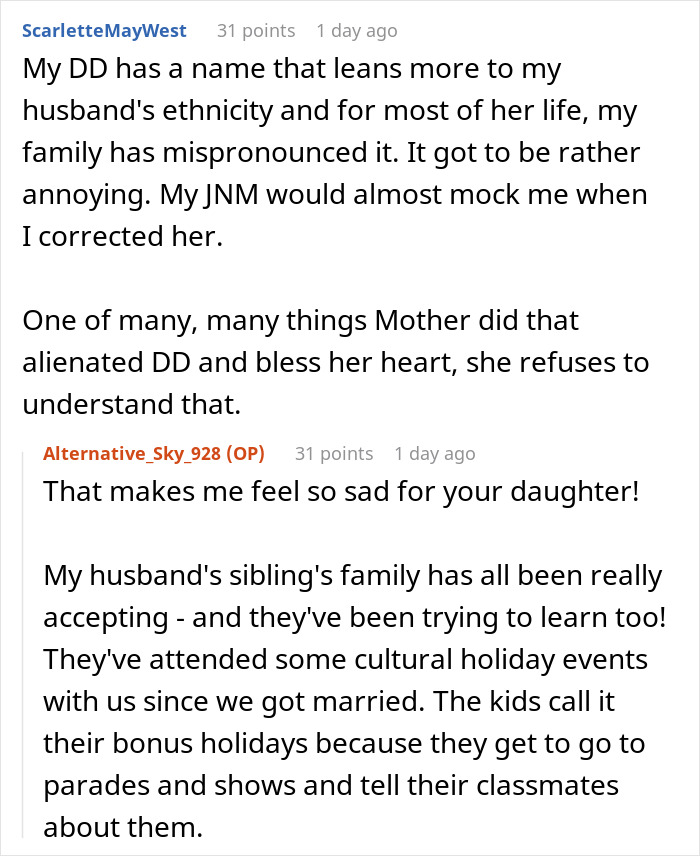


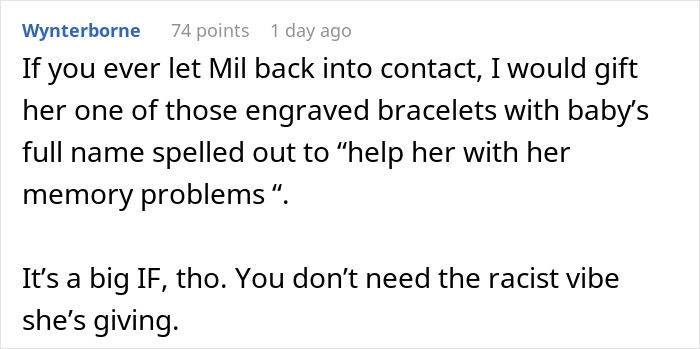









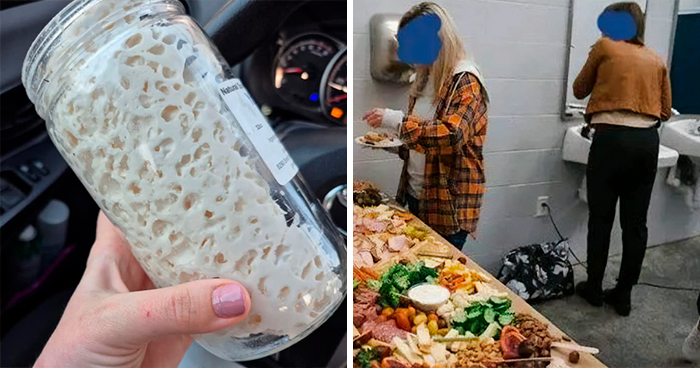
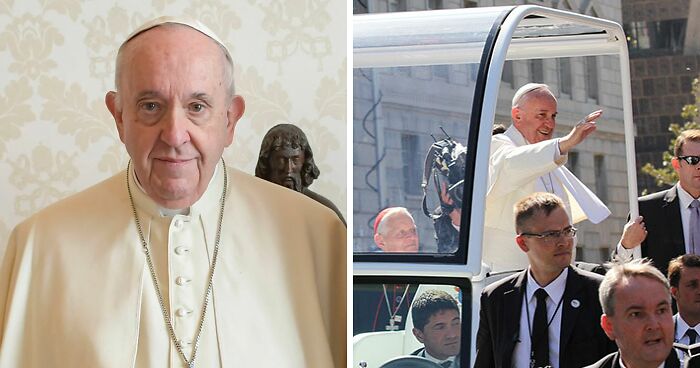



















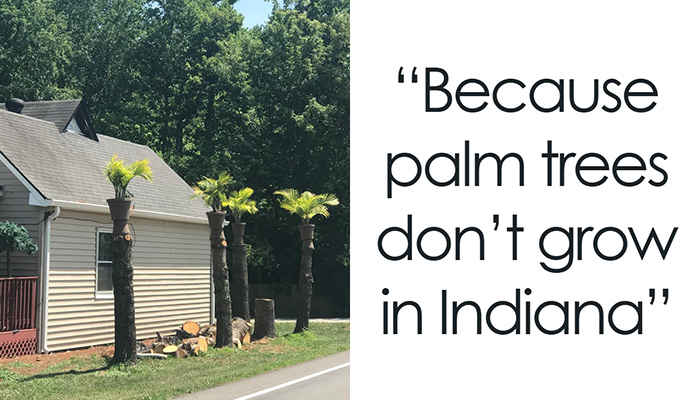














46
36